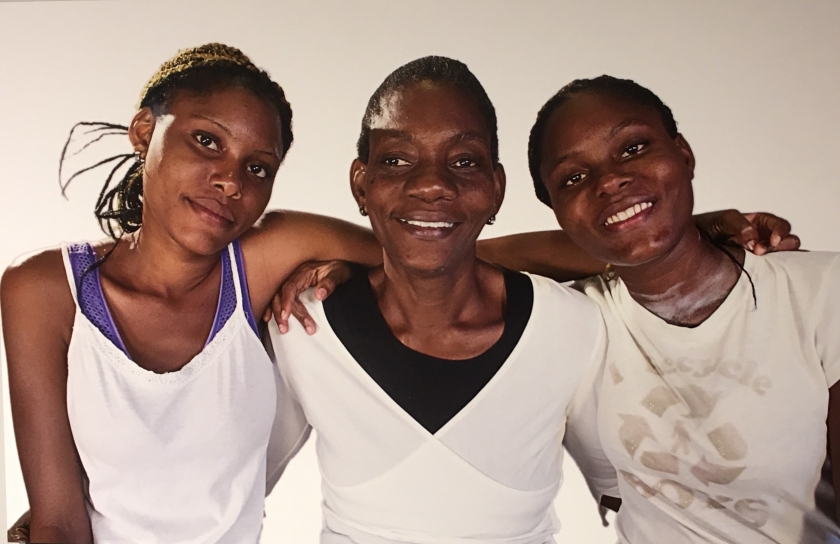

My last column in the Gleaner was published in April this year. For the time being I’ve decided to take a break from writing a column to focus on other projects which need my attention and time. Will resume writing on Active Voice as and when time permits. Thanks for tuning in!
At a discussion after a sneak preview of the film Four Days in May, a documentary about what survivors experienced during the blitzkrieg we refer to as the Tivoli incursion a young man said: “We can all remember where we were when history came and met us.”
“It come like a war zone. Caw dem a drop three bomb eno. Nuff a mi fren dem dead. After di incursion mi can tell yu seh mi guh funerALS,” said another resident who can’t forget what happened to his community in 2010, when the armed forces conducted their search for Dudus, the strongman of Tivoli Gardens on whom the United States had placed a bounty.
History will record that the most senior custodians of the state lied about what took place during those 4 days. They said there were no bombs; there was no surveillance drone when men and women had seen it with their own eyes; they did not ‘recall’ any such thing; moreover no angels had died in Tivoli. The 73 or so civilians who were killed should be seen as collateral damage they implied. What is worse is that large swathes of Jamaican society agreed with this view of things.
Nearly 8 years later the country has had to bring back limited states of emergency in different parts of the country after declaring them zones of special operations—ZOSO. While the clampdown in Montego Bay seems to have contained the spiraling violence there, it feels as if the criminals have simply scattered to different parts of the country. How else to understand the murderous turn of events in August Town as soon as 2017 ended and 2018 began?
In a remarkable article called “Teaching In The Line Of Fire” published in the Gleaner on March 5, UWI senior lecturer Saran Stewart tried her best to raise the alarm about what is going on in the country. For those of us who live and work in this corner of Kingston the last few weeks have been punctuated by gunfire, sometimes so loud it seems to be on the UWI campus itself. Wrote Saran:
It is now month three of the new year and the shots have left the dead of night and ring loudly in the peak morning time when children are still walking to school. Our educators teach in the line of fire and not only in the community of August Town, but also Denham Town, Flankers, Norwood, Cambridge and Rose Heights, just to name a few. In these communities gunmen trade bullets for the simplest necessity, such as a tin of mackerel, and barter lives for a ‘bills’ ($100). I have taught numerous students from volatile communities, whether they were born and raised there or currently boarding. Trying to centre their minds about the philosophies of education becomes futile when my students learn first-hand the ideologies of gun violence. As an educator, I have had to drift from the standard course outline and include students’ lived experiences as a mechanism to navigate their realities and consciously re-centre the course around their true learning environments. There are students who write their papers in the shell of their bathrooms by candlelight as it is the safest concrete box in the house. When the Jamaica Urban Transit Company (JUTC) suspends bus services, how do children leave those said communities to go to school? As educators, we try to find ways for students to unlearn what they perceive as standard, normal activity such as seeing mourning, orphaned children, weekly funeral gatherings, yellow ‘caution’ tape, bullet holes, blood stains, smelling gun powder, and reading WhatsApp messages stating, “Daddy dead”.
Yet this excellent article remained relatively unnoticed while the media exploded in an orgy of moral outrage about silly statements by members of one political party calling a member of the other party “black royalty”. Day after day for the entire week radio talk shows gave oxygen to this banal nonsense as if we live in Switzerland or Singapore and have nothing else to worry about.
When one of Saran Stewart’s students texted her from August Town to say that her assignment would be late as a family member had been shot dead Stewart asked her to forget the assignment and document her raw emotions instead. This is part of what she wrote:
“Over 20 years of blood shed! Has violence become my norm? Without thinking about my answer to this question, I would immediately say ‘yes’, crime and violence has become my norm. Born and raised in the community of August Town, nestled in a valley in the parish of St Andrew, surrounded by hills, the Hope River and in close proximity to two universities, this is my community.”
There’s more but is anyone listening? Is this really how we want our youngsters to meet history? Brutalized, shattered and traumatized, with no one even willing to pay attention when they write or talk about it?

